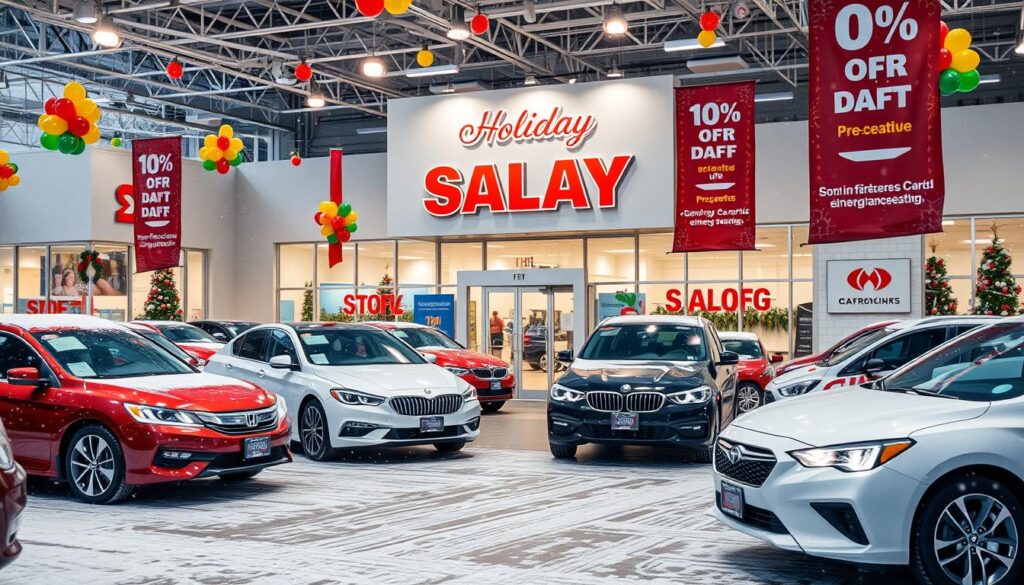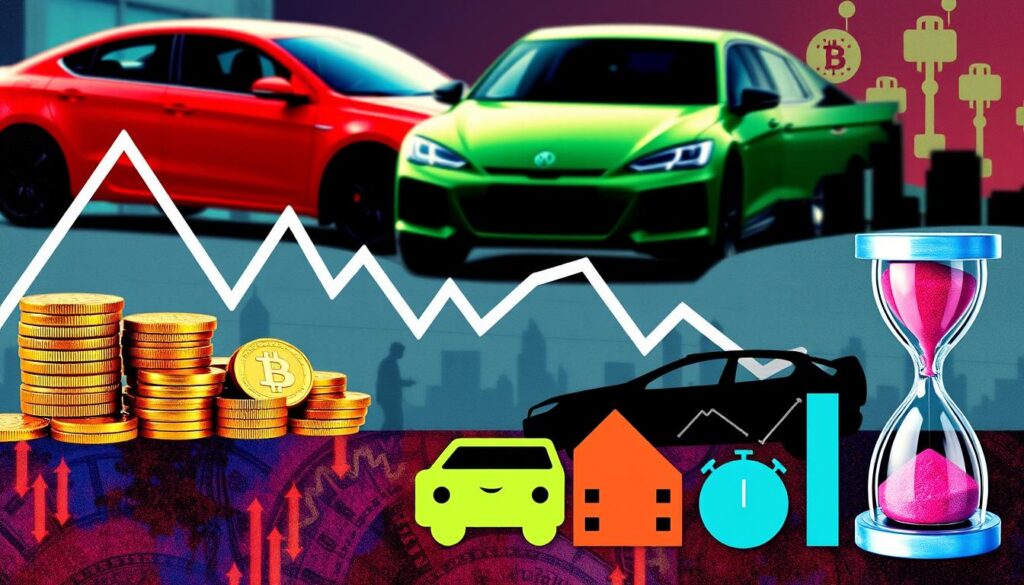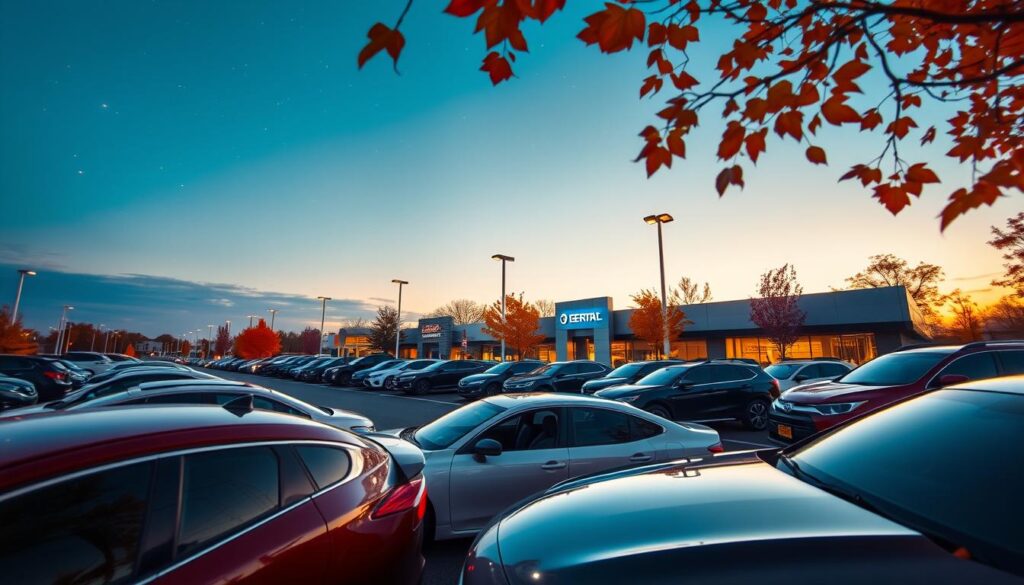If you’re wondering when is the best time to buy a car, you’re not alone. Timing can make a huge difference in how much you pay. Whether you’re searching for a new or used car, the best time to buy depends on various factors, including market trends, seasonal changes, and your own needs.
In this guide, we’ll help you answer the burning question: When is the best time to buy a car? We’ll explore key times of year to look for discounts, what’s happening in the market, and how to get the best deal possible. By the end, you’ll be armed with the knowledge to save big on your next car purchase.
In This Guide
Understanding the Car Buying Cycle
The timing of your car purchase can significantly impact the price. Understanding the car buying cycle allows you to identify the best times to buy, helping you secure the best deals and take full advantage of dealer incentives
Market Fluctuations and Price Trends
The car market fluctuates throughout the year, with prices and demand changing seasonally. Spring and summer tend to see higher demand and prices, while fall and winter often offer better deals for buyers. By staying informed about these market shifts, you can time your purchase to get the best value.
Supply and Demand Factors
Vehicle availability, both new and used, is key. When there’s plenty of supply and low demand, you can get better deals. But, when demand is high and supply is low, prices go up. Knowing this helps you find the best time to buy.
Dealer Inventory Management
Dealerships manage their inventory to meet sales goals. At times like the end of the month or quarter, they push to sell. This knowledge lets you buy at the best times for deals.
| Factor | Impact on Prices |
|---|---|
| Seasonal Demand | Higher in spring/summer, lower in fall/winter |
| Supply Availability | Higher supply means more negotiable prices |
| Dealer Inventory | End-of-month/quarter sales targets drive better deals |
Understanding these factors helps you find the best times to buy. This knowledge can save you thousands on your next car purchase.
Best Time to Buy Car: Monthly and Seasonal Opportunities
Timing is everything when it comes to best time to buy car. Knowing when seasonal car sales and auto deals happen can help you get the best price. This knowledge is key to making a smart choice for your next car.
The car market changes with the seasons. Car sales usually go up in spring and summer because of the nice weather and longer days. But, sales drop in fall and winter as people spend more on holidays.
- Use the seasonal car sales slowdown in fall and winter to find great deals on cars.
- Watch monthly sales trends to buy when dealers need to sell, like at month’s end.
- Look out for holiday sales events and year-end clearance promotions for extra savings.
By keeping up with car sales and deals, you can save a lot. The trick is to be flexible and watch the market closely. This way, you can find the perfect car at a great price.
“The best time to buy a car is when you need one, but being strategic about the timing can lead to significant savings.”
End-of-Year Shopping Strategy
As the year ends, car shoppers find great deals. December is the best time for cash rebates, low interest rates, and dealer incentives. It’s also when new model years start.
December Deals and Incentives
December is full of cash rebates, low interest rates, and dealer incentives. Car makers want to clear out old models for the new ones. They offer good financing and discounts to attract buyers.
Year-End Clearance Events
Watch for year-end clearance events at dealerships. These events help clear out old models, offering big savings. Dealers want to make room for new models, giving you a chance to get a great deal.
Model Year Transitions
When new models arrive, dealers push to sell old ones. This is a great time to find deals on last year’s models. Dealers are eager to sell, so you can save a lot.
Shopping for cars at the end of the year can lead to big savings. You’ll find cash rebates, low interest rates, and dealer incentives. It’s the best time to get a good deal on your next car.
Holiday Sales Events and Special Promotions
As the holiday season approaches, car buyers have many chances to find great deals. Holidays like Memorial Day, Labor Day, and Black Friday offer holiday sales events, auto deals, and cash rebates. These events are perfect for finding a new or used car at a lower price.
During these sales, you can find special offers like financing deals and discounts on new and used cars. Dealers aim to clear out old stock for the latest models. This is a great time for smart shoppers to get their dream car at a good price.
- Memorial Day sales events offer discounts on outgoing model year vehicles, making way for the next generation.
- Labor Day promotions commonly feature incentives like cash rebates, low-interest financing, and added value packages.
- Black Friday is renowned for its deep discounts and doorbuster deals, making it an ideal time for car buyers to find exceptional auto deals.
By keeping up with these holiday sales and using cash rebates and special offers, you can save a lot. This way, you can drive away in your dream car at a lower cost.

Whether you want a new or used car, watching the calendar for these holiday sales events is key. It helps you save a lot and find the perfect car for you.
Month-End and Quarter-End Advantages
Smart buyers can get great deals by negotiating car prices at month-end and quarter-end. Dealerships are under pressure to hit their dealer incentives and sales goals. This can help you get a better deal.
Dealer Sales Quotas
Dealers must meet sales targets from manufacturers. As the month or quarter ends, they might offer bigger discounts and cash rebates. Shopping at the right time can help you take advantage of their need to sell.
Manufacturer Incentive Programs
Car makers also have programs to help dealers meet sales goals. These can include bonuses for selling cars or clearing out old stock. These incentives can save you a lot of money. Look for special deals that pop up at the end of the month or quarter.
“Knowing when to shop can make all the difference in negotiating car prices and getting the best possible deal.”
Understanding the car buying cycle and what drives dealers and manufacturers can help you. It can lead to better negotiating car prices and getting the best dealer incentives and cash rebates.
Leveraging Model Changeovers for Better Deals
Are you looking for a new car? A smart auto deal is to use model changeovers to your advantage. This is when car makers introduce new models, offering big discounts on the old ones.
To save the most, knowing when new models come out is key. New cars usually hit the market in late summer or early fall. This means you can get low interest rates on last year’s models as dealers clear out space for the new ones.
- Watch for end-of-year sales, where dealers want to get rid of the old to make room for the new.
- Keep an eye on manufacturer incentives and rebates, which often go up as the year ends.
- Be open to different colors and features to save money on an outgoing model.
By planning your car buy around model changeovers, you can get a great car for less. Stay up to date, be patient, and you’ll have a top-notch car buying experience.
“The key to scoring a fantastic deal on a car is to time your purchase with the release of the next model year. That’s when you’ll find the best prices and incentives on the outgoing version.”
Weekday vs. Weekend Car Shopping
The best time to buy a car can depend on the day of the week. Knowing the weekday versus weekend car buying landscape is key. Each day has its own benefits and things to consider.
Benefits of Monday-Thursday Shopping
Buying a car on weekdays, like Monday through Thursday, has its perks. Dealerships are less crowded, and staff is more available to help you. This means you might get better negotiating car prices and more personal service.
Weekend Shopping Considerations
Weekends might seem like a good time to car buying strategies, but they come with challenges. Dealerships get more customers, leading to more competition and less flexibility. Sales staff might be too busy, and you could face delays in test drives or paperwork.
Weekends also bring pressure from sales teams trying to meet their targets. This can make it harder to negotiate, as dealers might not offer as many discounts or incentives.
Choosing between weekday or weekend shopping depends on your preferences and schedule. Knowing the pros and cons of each can help you make a smart choice. This way, you can get the best negotiating car prices and car buying strategies.
Economic Factors Affecting Car Prices
Getting the best auto deals means knowing what affects car prices. Things like interest rates and market changes play big roles. These factors can really change how much you pay for a car.
Interest rates are key in how easy it is to get a car loan. Low interest rates make loans cheaper, which can raise demand and prices. But, when rates go up, it might be easier to find better auto deals.
Inflation also affects car prices. When prices for everything else go up, car makers and sellers might raise their prices too. This makes it harder to find low interest rates and good deals, especially for popular cars.
| Economic Factor | Impact on Car Prices |
|---|---|
| Interest Rates | Lower rates can increase demand, leading to higher prices, while higher rates may create opportunities for better deals. |
| Inflation | Rising inflation can drive up the overall cost of vehicles, making it more difficult to find low interest rates and favorable auto deals. |
| Market Fluctuations | Shifts in supply and demand, inventory levels, and competition can all influence the pricing landscape for new and used cars. |
Watching these market fluctuations and economic signs can help you save money. It’s all about timing your car buy right to get the best auto deals. Being smart and flexible can help you win in the car market.

“Understanding the economic factors that shape car prices is the key to finding the best deals and saving money on your next vehicle purchase.”
Maximizing Trade-In Value Timing
Trading in your car for a new one can greatly affect the value you get. Knowing when to trade in your car can help you get a better deal. This is because trade-in values change with the seasons and market trends.
Seasonal Impact on Trade-In Values
Trade-in values change throughout the year. SUVs and trucks are more valuable in winter because of their all-wheel-drive. On the other hand, convertibles and sports cars are more sought after in spring and summer.
Market Demand Fluctuations
Trade-in values also change based on market demand. When certain cars are popular, dealers offer more for them. Knowing what cars are in demand can help you get a better trade-in price.

